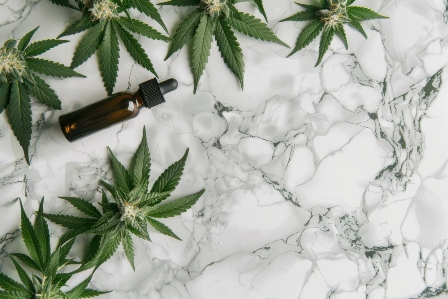
As pet owners increasingly seek natural alternatives for their feline companions, CBD has emerged as a promising option for various cat health concerns. This comprehensive guide explores everything you need to know about CBD for cats, including its benefits, proper dosage, safety considerations, and how to choose quality products.
Understanding CBD and How It Works for Cats
Cannabidiol (CBD) is a non-psychoactive compound derived from the hemp plant. Unlike THC, CBD doesn’t produce a “high” but interacts with your cat’s endocannabinoid system (ECS), which plays a crucial role in maintaining balance in the body.
The ECS regulates various physiological processes including:
- Pain perception
- Mood and stress response
- Immune function
- Appetite and digestion
- Sleep cycles
When CBD is introduced to your cat’s system, it supports the ECS in maintaining homeostasis, potentially helping with various health issues without the side effects of conventional medications.
Top Benefits of CBD for Cats
Anxiety and Stress Relief
CBD may help calm cats suffering from separation anxiety, noise phobias (like fireworks or thunderstorms), or stress from travel or vet visits by promoting relaxation without sedation.
Pain Management
CBD’s anti-inflammatory properties may help cats with arthritis, joint pain, or post-surgical discomfort by reducing inflammation and interacting with pain receptors.
Improved Appetite and Digestion
For cats with nausea or appetite issues, CBD may help stimulate hunger and support healthy digestion by interacting with digestive system receptors.
Seizure Control
Early research suggests CBD may help reduce the frequency and severity of seizures in epileptic cats, similar to its FDA-approved use in humans for certain seizure disorders.
Skin and Coat Health
CBD’s anti-inflammatory properties may benefit cats with skin allergies, excessive grooming, or dermatitis when used both internally and topically.
Senior Cat Support
For aging cats, CBD may provide comprehensive support by addressing multiple age-related issues including mobility, cognitive function, and overall comfort.
CBD Dosage for Cats: A Complete Guide
Determining the right CBD dosage for your cat depends on several factors including weight, the condition being addressed, and individual sensitivity. Here’s a general guideline:
| Cat Weight | Low Dose (Maintenance) | Medium Dose (Therapeutic) | High Dose (Acute Issues) |
|---|---|---|---|
| Under 5 lbs | 1-2 mg | 2-3 mg | 3-5 mg |
| 5-10 lbs | 2-3 mg | 3-5 mg | 5-8 mg |
| 10-15 lbs | 3-5 mg | 5-7 mg | 7-10 mg |
| Over 15 lbs | 5-7 mg | 7-10 mg | 10-15 mg |
CBD Dosage Calculator for Cats
How to Administer CBD to Your Cat
CBD for cats comes in several forms, each with its own advantages:
- CBD Oil/Tinctures: Allows precise dosing; can be given directly or mixed with food
- CBD Cat Treats: Easy to administer; combines CBD with other beneficial ingredients
- CBD Capsules: Good for cats who won’t take oil; pre-measured doses
- Topical CBD: For skin issues or localized pain
Important Safety Considerations
While CBD is generally considered safe for cats, there are important precautions to keep in mind:
- Always use CBD products specifically formulated for pets (human CBD may contain ingredients harmful to cats)
- Start with the lowest recommended dose and gradually increase as needed
- Consult your veterinarian before starting CBD, especially if your cat is on medication
- Watch for potential side effects like drowsiness, dry mouth, or temporary digestive upset
- Avoid CBD products containing THC, which can be toxic to cats
Frequently Asked Questions About CBD for Cats
While CBD is generally safe for most cats, it’s not recommended for pregnant or nursing cats, very young kittens (under 6 months), or cats with certain pre-existing conditions like liver disease without veterinary supervision. Always consult your vet before starting any new supplement.
The effects of CBD can typically be noticed within 30-60 minutes when given orally, though this varies by individual cat and the condition being treated. For chronic issues, it may take 2-4 weeks of consistent use to see full benefits.
CBD can potentially interact with certain medications metabolized by the liver, similar to grapefruit. This includes some pain medications, anti-seizure drugs, and certain antibiotics. Always inform your veterinarian about any supplements your cat is taking.
Full-spectrum CBD contains all beneficial compounds from the hemp plant (including trace amounts of THC below 0.3%), while CBD isolate is pure CBD. Many experts believe full-spectrum offers enhanced benefits due to the “entourage effect,” but isolate may be preferred for cats with extreme sensitivity.
The Science Behind CBD for Cats
While research on CBD specifically for cats is still emerging, several studies support its potential benefits:
- A 2019 Cornell University study found CBD helped increase comfort and activity in cats with osteoarthritis
- Research published in the Journal of Feline Medicine and Surgery (2021) reported reduced stress behaviors in cats given CBD before vet visits
- Multiple studies on mammals show CBD’s anti-inflammatory and neuroprotective properties may translate to feline health
Veterinary researchers emphasize the need for more cat-specific studies but acknowledge CBD’s promising therapeutic potential when used appropriately.
Final Thoughts on CBD for Cats
CBD offers a natural approach to supporting your cat’s health and wellbeing, with potential benefits ranging from anxiety relief to pain management. By choosing high-quality products, starting with proper dosing, and monitoring your cat’s response, you can safely explore CBD’s potential benefits for your feline companion.
Remember that CBD isn’t a cure-all and works best as part of a comprehensive care plan that includes proper nutrition, regular veterinary care, and a loving home environment. Always consult with a veterinarian knowledgeable about CBD before starting your cat on any new supplement regimen.





